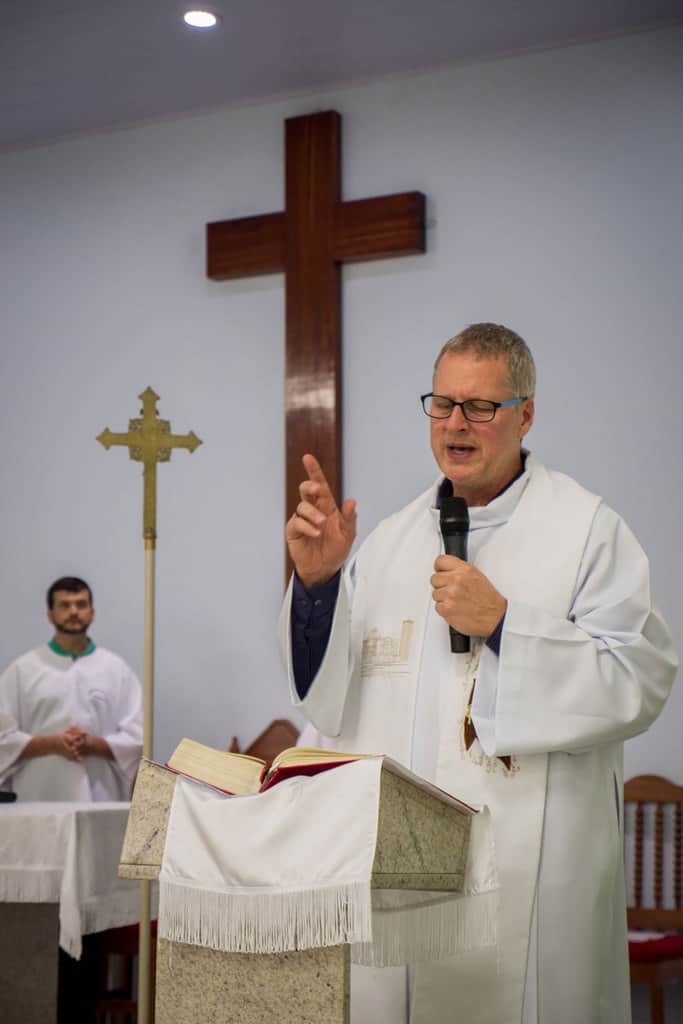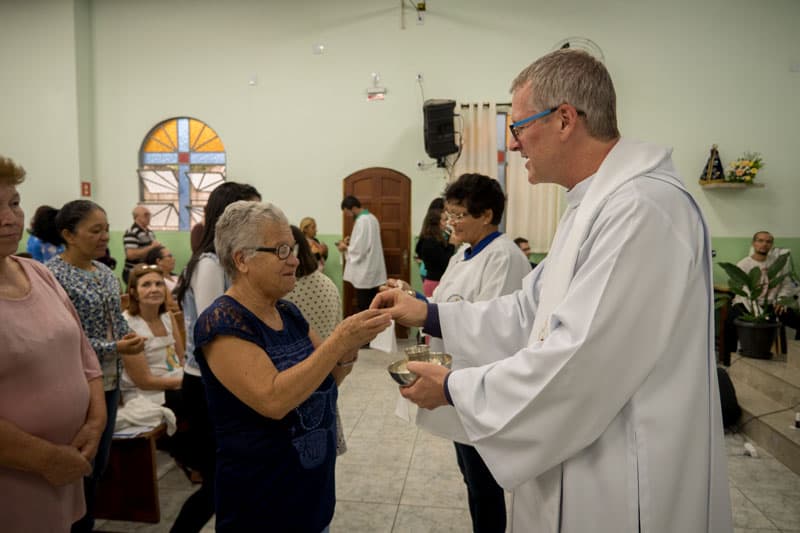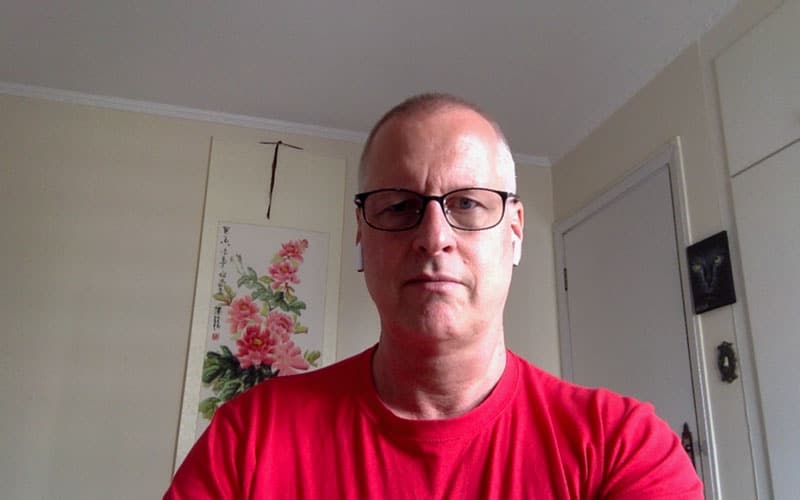Maryknoll priest offers advice on how to cope
with the trauma of COVID-19 coronavirus
As a Maryknoll missionary priest, much of my ministry over the past decade has been devoted to helping people learn to heal from trauma by reconnecting with the healing power within their own body. When we learn to bring our awareness into our body and really listen to the deep wisdom it holds, we also unleash its healing power.
This is most certainly true and needed in this time of the coronavirus.
From the Christian perspective, one of the root meanings for the word “salvation” is “health” or “wholeness.” Furthermore, in mainstream Christian theology, the mystery of the Incarnation is a central doctrine expressed in John 1:14: “The Word became flesh and dwelt among us.”
For many Christians it is easy to believe in the Divine Word embodied in Jesus, the Christ, but it can be more difficult to fully embrace this mystery within one’s own self. As Christians, we believe that the body is sacred, but often, we live as if the body were something that gets in the way of the Divine.

Father Dennis Moorman gives a homily at Mass on the feast of St. Joseph, patron of the parish in Perus, State of São Paulo, Brazil, where he serves. (Nile Sprague/Brazil)
Contemporary trauma specialists understand trauma as being anything that is too much for the body to handle in a given moment. When we are overwhelmed by a difficult life experience, many times we will automatically disconnect from our body in order to avoid feeling the overwhelming pain or the threat to our existence. This is actually a natural protective mechanism that is referred to, in technical terms, as “dissociation.”
In the midst of the coronavirus pandemic, people are responding in a myriad of ways. Some people are living as though the threat doesn’t really exist and are likely living in a partial state of dissociation, which allows them to deny the reality. Others are experiencing panic attacks or are being paralyzed by the overwhelming fear and isolating themselves.
These are all signs of trauma. In this case, trauma is not just affecting us as individuals, but as a whole society in the form of social trauma that is spreading throughout the world.
What is the healthy solution that will allow us to heal and stay connected with the integrity of our body and respond in socially appropriate ways of solidarity with one another? To arrive at the solution, it’s important to understand that what often feeds the traumatic energy within us, above and beyond the actual event, is our thinking.

Before the quarantine and trauma of COVID-19, Father Dennis Moorman distributed Holy Communion at Mass at St. Joseph Church in Perus, Sao Paulo, Brazil. (Nile Sprague/Brazil)
These days, the news and social media are inundated with images and talk about the threat of the coronavirus. Each time we listen to a news story or see the images on the television screen over and over, day in and day out, of people dying from the virus, we are fueling the fear within that quickly brings us to a state of overwhelm. All of our waking thoughts become focused on the threat of this virus and are accentuated by the information we take in, not to mention the fact that much of the information out there is not based on scientific fact.
So, the first thing we can do to help overcome this trauma is to make a conscious decision to limit the time we spend taking in information that activates the fear within us. We can make informed decisions about where we get our information, and hopefully that would be from a reliable source.
Also, we can be sure to spend a significant amount of time doing things that we enjoy, such as: engaging in dance, art, music, play and hobbies. Strengthening our spiritual connections through taking time for creative and expressive prayer can also be an important way to nurture our faith and hope in the midst of crisis. Nurturing these resources will serve to counteract the negative things that are occupying our mind and weighing us down.
Second, we have to break the pattern of thinking about the traumatizing issue all the time. We can do this by consciously directing our awareness to what is happening in the rest of our body. When we bring our attention to our physical bodily sensations, our awareness moves away from our thoughts and is focused on the concrete reality of what is happening in the present moment. The mind can make us believe many things that aren’t true, but the body doesn’t lie.
When we pay attention to our physical body, we give it the power to do what it is designed to do: bring us into a state of regulation or equilibrium. For example, when we get trapped in an experience of fear and begin to panic, we can simply notice how this physically feels in our body. We might notice that our breathing rate and heart rate speed up or our legs begin to shake. Instead of attempting to resist these sensations, we can simply notice them and allow them to speak to us.
When we pay attention to what is actually happening physically in our body, equilibrium eventually will be restored.

During days of quarantine, Father Moorman helps people worldwide cope with the trauma of COVID-19 virtually from his home in Sao Paulo, Brazil. (Courtesy of Dennis Moorman/Brazil)
The problem is that often instead of paying attention to our body, we go immediately into our head and begin thinking, “Oh my, what is happening? What if this happens? or What if that happens ?” These thoughts are what actually fuel the fear inside and increase the panic within. The secret for healing lies in getting out of our mind and reconnecting with what is happening in the body.
When we reconnect with our body, things will eventually calm down inside and we will be able to think more clearly. The practice of listening to our body takes seriously our belief in the Incarnation that the Word became flesh and dwelt among us.
A third important thing we can do is to maintain social connections. Currently, we are being encouraged to practice “social distancing” to prevent the spread of the virus. However, some people interpret this as “social isolation,” which means they lose contact with other people. We human beings are “social animals” and we need one another to feel supported and to give support. When we connect with another human being, especially through face-to-face interactions, whether this be in person or merely through virtual means via computer or cell phone, this allows our body to calm down in a process known as co-regulation. In Christian terms, we talk about this as encountering the face of Christ in one another.
In summing up what we can do to avoid being drawn into the “panic” of the pandemic and staying spiritually and emotionally whole:
* Make a conscious and informed decision to limit the information we take in, and spend a significant amount of time doing things we enjoy, including spending time in prayer.
* Bring our awareness into the physical sensations of our body and give them the space and time they need to bring the body back to its natural state of equilibrium.
* Make social connections with people whom we trust through social media and platforms that allow us to make face-to-face contact with one another.
Featured Image: Father Dennis Moorman stands outside St. Joseph Church, where he serves in Perus in Sao Paulo, Brazil. (Nile Sprague/Brazil)

